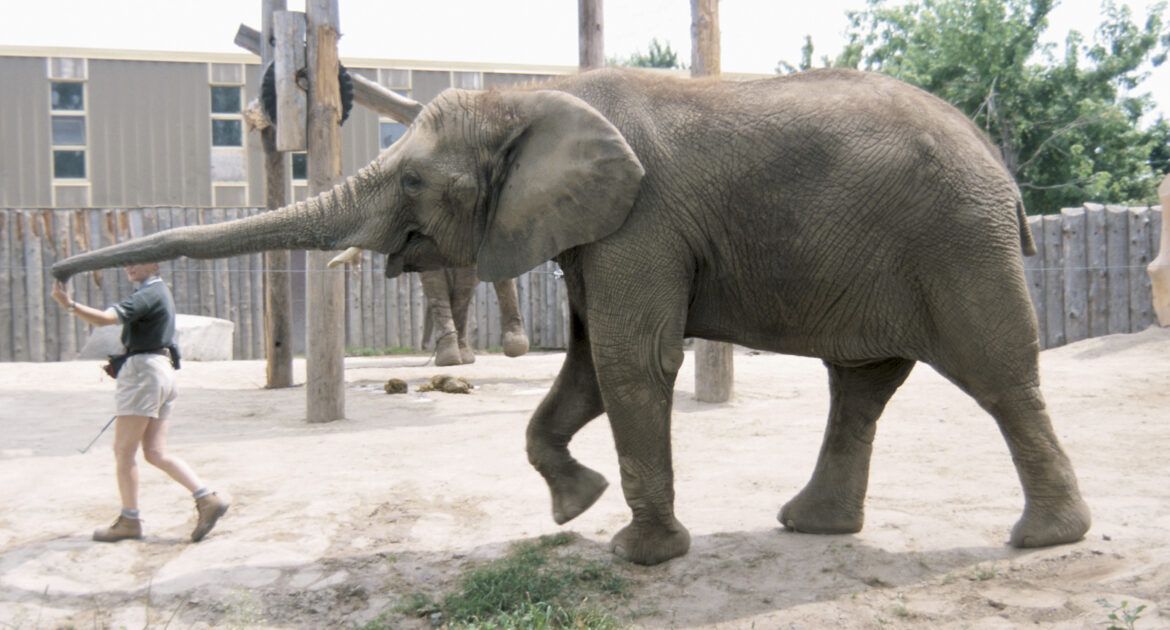Are you thinking about a research career in zoology? You might have just graduated in the field and are considering doing a PhD, or perhaps you’re already working as a postdoctoral zoology researcher.
Whatever your career stage, here we tell you everything you need to know about this popular research field, routes into zoology research and where your skills and knowledge can take you next.
What do zoology researchers do?
Zoology researchers conduct laboratory and field research into the evolution, features and behaviour of animals. From ants to elephants, they study how species interact with each other and their ecosystem, population dynamics and the effect of environmental damage on animal life.
Researchers in this field carry out individual and collaborative research in higher education, government and public bodies, charities and NGOs and sectors such as agriculture, pharmaceuticals and conservation.
Zoology research areas and interests include:
- Evolutionary genetics/genomic/biology
- Conservation biology
- Animal genetics
- Behavioural ecology
- Entomology
- Cell and developmental biology
- Biodiversity
- Biomedical research
If you choose to become a zoology researcher in higher education, your role will involve working in a multidisciplinary team with colleagues from backgrounds in biological, physical and medical sciences.
Depending on your expertise, you could be working on anything from studying the transmission of avian flu in seabirds to understanding evolution through paleozoology (fossil remains). You will most likely work in a laboratory setting, where you will observe animals and insects, carry out testing and analyse findings. The role might also involve fieldwork research, where you would observe species in their natural habitats anywhere in the world. Most zoology research jobs involve the following day-to-day activities:
Duties:
- Designing experiments and analysing samples in a laboratory.
- Carrying out field research and sample collection.
- Gathering and interpreting data.
- Writing reports, scientific articles and research outcomes.
- Collaborating with colleagues to compile funding proposals.
- Attending conferences, knowledge exchange forums and events related to your project.
- Liaising with external stakeholders, conservation and policymaking organisations.
- Managing a team of researchers and technicians (senior zoology research roles).
- Carrying out ad hoc teaching and demonstrations to students at all levels.
How to Become a Zoology Researcher
To work as a zoology researcher, you will generally need to have completed a PhD or be near completion. The area you focus on during doctoral studies will influence the type of role you apply for, as your expertise would need to align with the objectives of a particular project or programme.
Postdoctoral research jobs in zoology generally require the following qualifications, experience and knowledge.
Essential qualifications
- An undergraduate degree and/or Master’s in zoology or other relevant biological science.
- A PhD in zoology or related area. If you have not completed your PhD yet, take a look at our current Zoology PhD Studentships.
Experience and knowledge
If you’re applying for your first postdoctoral post, you will need previous research experience – most likely gained during your PhD – in an area which aligns with the project. More senior research roles would require a wide range of postdoctoral experience plus evidence of published outcomes.
For all biological sciences research jobs, you would need high-level laboratory skills and the ability to use cutting-edge equipment. Knowledge of and skills in computational biology, computer vision, machine learning and multilevel modelling may also be required.
What’s the pay?
A postdoctoral research associate/fellow in zoology can expect a salary in the range of £38,200 to £44,100 p.a. Senior research associates/fellows can expect between £44,263 to £54,395 p.a., depending on the project.
What can it lead to?
On gaining several years of postdoctoral experience, you could apply for senior research fellowships or choose to combine your research with teaching in a lecturing role.
Alternatively, you might decide to work as a senior research scientist in a non-university setting, such as a conservation charity, research institute or in industry. Promotion to senior research positions depends on successful research outcomes and your ability to work as part of a multidisciplinary team.
Where can I find jobs?
Zoology research offers a wide range of career opportunities for doctoral students, postdocs and senior researchers in a variety of settings worldwide. However, it’s a popular field and competition for jobs can be high.
You will find higher availability of jobs in areas such as conservation, ecology, biomedical science and disease prevention/treatment (such as studying and treating zoonotic diseases or parasitological diseases like malaria).
Most academic research posts are funding-dependent and offered on a fixed-term contract basis, so you may find you will need to move from post to post as a researcher. Zoological research is supported by a network of funding sources and universities often partner with external organisations and industry to complete a project.
To find out more about the types of zoology research currently receiving funding in the UK, visit UK Research and Innovation (UKRI), or take a look at the impact of previous and ongoing research on the Research Excellence Framework’s impact case study database.
The best place to start your search for a zoology research job or PhD Studentship is here at jobs.ac.uk. We’re the largest jobs board in the field for academic research jobs and you’ll also find a wealth of tips, advice and guidance on how to progress your research career.
Find Zoology Research Jobs here





Leave a Reply